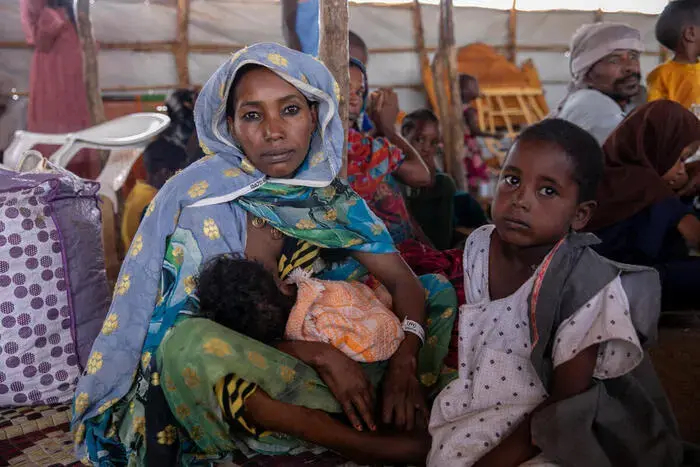Africa
Cholera Concerns Rise as Sudan Confronts Escalating Water Crisis

Sudan faces an alarming water crisis that heightens fears of a cholera outbreak, prompting urgent calls for humanitarian assistance and improved access to clean water.
As the civil war continues in Sudan, residents of Khartoum are facing a worsening water crisis along with food shortages.
They currently have to either use carts to collect water from the Nile River or buy untreated water, which has become increasingly scarce.
“We have been without water for 17 days, and the situation is unbearable,” says local resident Ahmed Musa. “We now have to purchase our water, but the prices are skyrocketing; two barrels cost 1,000 Sudanese pounds (approximately $1.66).”
To provide some context, according to UN statistics, the average annual income for a Sudanese individual is $2,379, which breaks down to approximately $6.50 per day.
The critical water infrastructure of the city, comprising a Nile River water treatment facility and multiple urban supply stations, has suffered significant damage due to the ongoing conflict.
Additionally, a lack of personnel and spare parts has led to network disruptions in several districts for months, leaving tens of thousands of households without water.
READ ALSO: Fighting in Sudan’s North Darfur Claims Lives of 13 Children, UNICEF Reports
Consuming untreated water has led to exposure to various illnesses, such as cholera, a bacterial disease transmitted through contaminated water.
As winter approaches, the deteriorating health crisis and shortage of essential supplies risk exacerbating the humanitarian situation in Sudan.
The Sudanese Ministry of Health announced on Saturday the launch of a vaccination campaign aimed at immunizing over 1.4 million people against cholera in the eastern and northern regions of the country.
Since mid-April of last year, Sudan has been devastated by a deadly conflict between the Sudanese Armed Forces and the paramilitary Rapid Support Forces.
Since the onset of the conflict, epidemic diseases like cholera, malaria, measles, and dengue fever have spread rapidly, resulting in hundreds of fatalities.
The Ministry of Health has reported a total of 25,037 cholera cases and 702 associated deaths to date.
On Friday, UNICEF, the United Nations children’s fund, issued a warning that 3.1 million individuals in Sudan are at risk of cholera, including 500,000 children under the age of five.
